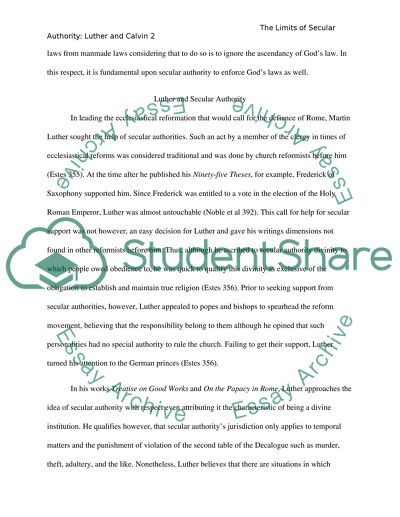Cite this document
(“Legitimacy of Secular Authority Among Calvin, Luther and Muntzer Essay”, n.d.)
Retrieved from https://studentshare.org/history/1436308-legitimacy-of-secular-authority-among-calvin
Retrieved from https://studentshare.org/history/1436308-legitimacy-of-secular-authority-among-calvin
(Legitimacy of Secular Authority Among Calvin, Luther and Muntzer Essay)
https://studentshare.org/history/1436308-legitimacy-of-secular-authority-among-calvin.
https://studentshare.org/history/1436308-legitimacy-of-secular-authority-among-calvin.
“Legitimacy of Secular Authority Among Calvin, Luther and Muntzer Essay”, n.d. https://studentshare.org/history/1436308-legitimacy-of-secular-authority-among-calvin.


